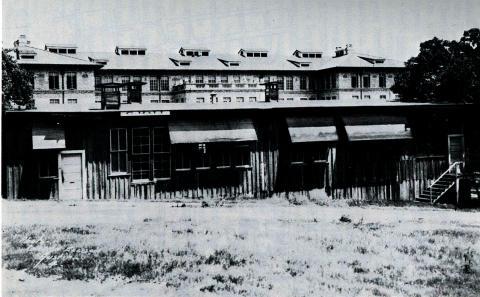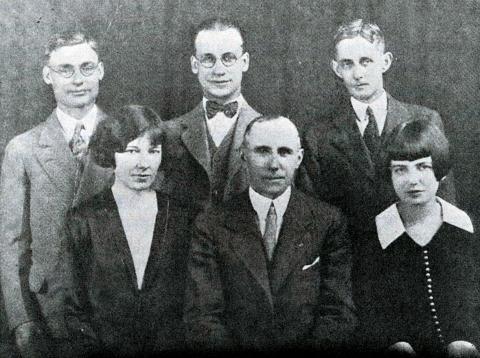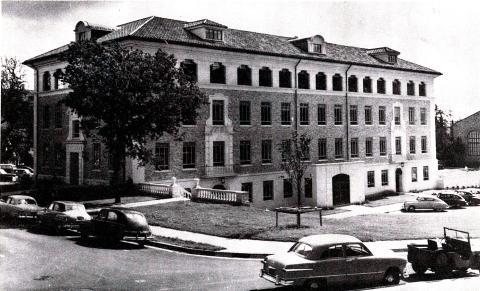Texas Pharmacy: a proud tradition

In October 1893, three professors and 11 students began classes in below ground level rooms of the Old Red Main Building at the University of Texas Medical Branch at Galveston. Texas pharmacy education was born.
Over the years, faculty, students, alumni, and programs of the UT College of Pharmacy have continued to serve as stellar examples of pharmacy at its finest. Throughout its first century, the college stood at the forefront of innovative and pioneering directions in pharmaceutical education and research.
Today, it continues that proud tradition.
Texas Pharmacy Through the Years

The University of Texas School of Pharmacy was established in Galveston in 1893 with a legislative allocation of $2,500 and with James Kennedy as chairman. Classes during the first year occupied three rooms of the basement of the Medical Department’s “Old Red Building” in Galveston. Reconstruction of campus buildings following the devastating 1900 hurricane in Galveston resulted in the first expansions and improvements to the school.
The school continued operation throughout World War I despite shortages of supplies and chemicals and the departure of both students and faculty to serve in the military. Following the country's entry into the war, the program saw a doubling of the number of women students applying to and attending the school.
By 1927, the Board of Regents moved the College of Pharmacy to the The University of Texas at Austin campus. There it was housed in temporary makeshift quarters including army barracks. Classes were also conducted in the biology and chemistry buildings. The college became a member of the American Association of Colleges of Pharmacy (AACP), and by 1939, it had the largest enrollment of any pharmacy school in the country.

The College of Pharmacy continued classes throughout World War II, although the college itself remained in the center of a UT System debate over its future location. In 1946 after much debate, the UT Board of Regents voted to retain the College of Pharmacy on the main campus in Austin. A permanent pharmacy building was finally completed in 1952 and remains on campus (colloquially referred to as the "Old Building") to this day.
In 1954 and after a six-year effort by faculty, the Ph.D. program in pharmacy received final approval. Esther Jane Wood Hall, a faculty member of the college, was awarded the first Ph.D. degree in pharmacy administration presented to a woman by an American university.
James T. Doluisio became dean of the college in 1973 after an 18 month search. Doluisio would remain dean for another 25 years, until Steven W. Leslie assumes the role in 1998. By 1976, the college's Doctor of Pharmacy (Pharm.D.) degree program received full accreditation, and the following year, the UT College of Pharmacy became the only pharmacy college in Texas to offer both Doctor of Pharmacy and Doctor of Philosophy degrees.

A Pharmacy Building addition was completed in 1980 (colloquially referred to as the "New Building" today), which included a Student Health Center pharmacy, a learning resource center, a nuclear pharmacy laboratory and a television production laboratory. The Texas College and University System Coordinating Board cited the UT Doctor of Pharmacy program as one of the top three such programs in the United States.
In 1991, The college helped dedicate the new Robert F. McDermott Clinical Science Building in San Antonio, which included teaching and research facilities for the San Antonio Clinical Program. By 1999, in response to a national trend toward the Pharm.D. degree as the preferred entry-level degree program in pharmacy education, the college had phased out its B.S. in Pharmacy degree and brought in its first all Pharm.D. class in the fall.
M. Lynn Crismon was named dean of the college in 2007. In 2010, the Dell Pediatric Research Institute opened, providing a college home to new faculty researchers including Dr. John DiGiovanni, who specializes in the field of childhood cancers, and Dr. Rong Cui, who studies non-invasive delivery of vaccines. In 2020, Crismon stepped down as dean and Sam Poloyac assumed the role.

